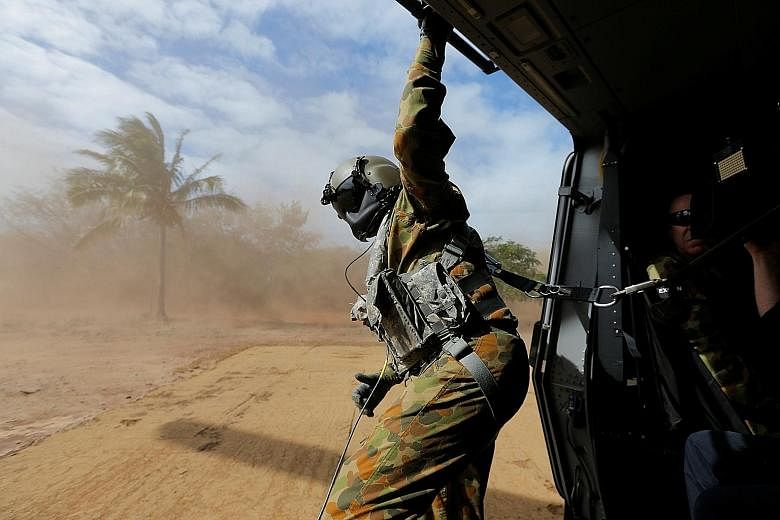Australia's military has long grappled with massive waste and overspending as well as projects running years late or never completed.
Now, a former brigadier in the Australian Defence Force who became a Liberal MP three years ago, Ms Linda Reynolds, is pushing for a novel solution.
She wants Australia to adopt a bipartisan approach to defence, in which the major parties would agree on long-term spending as well as hardware and weapons acquisitions. This could include, for instance, reaching bipartisan agreement on such projects as Australia's A$89 billion (S$91.4 billion) naval build-up, which includes buying and building 12 submarines, nine frigates, and 12 offshore patrol vessels. Such agreements would no longer be subject to Australia's three-yearly federal election cycle.
"Not a single defence strategic guidance or capability plan has ever come close to being fully funded and implemented," Ms Reynolds said last month. "How we can obtain long-term bipartisan policy stability and create the political conditions for long-term delivery and to harness innovation?"
As chairman of the Parliamentary Defence Sub-Committee, Ms Reynolds launched an inquiry earlier this year to examine whether Australia's opposing political sides - the Liberal-National Coalition and the Labor party - could, or should, develop a bipartisan approach towards defence planning and capabilities.
The inquiry members have been touring the country, visiting military bases and taking submissions from experts. They plan to examine approaches adopted internationally, including in Denmark, where political parties have a consensual approach to national security.
But defence experts have been largely sceptical of whether a bipartisan approach can lead to greater transparency, accountability and consistency in defence planning.
An expert on defence and security policy, Dr Daniel Baldino, from the University of Notre Dame, said there were no "magic bullets" for fixing waste and inefficiency. Instead, encouraging political debate was likely to promote - rather than hinder - better long-term outcomes.
He said defence planners should focus on avoiding high-risk purchases and should ensure spending was governed by a long-term plan.
"In the past, defence procurement has been a horror show," he told The Straits Times. "The world is an increasingly complex place... Parliament and parliamentary debate are where you should be doing risk assessment and being proactive and identifying problems."
Australia's defence budget for this year was A$34.6 billion, up almost 50 per cent in the past five years as the federal government aims to lift defence expenditure to 2 per cent of gross domestic product.
But defence planners have often been criticised for lengthy delays, budget blowouts and inefficiencies. One of the most famous examples is the Collins Class submarines, which have had repeated delays and technical problems and are believed to be the world's most expensive submarines to maintain.
The proposal for a bipartisan approach was largely welcomed by business groups and defence firms as a way to improve investor confidence. But most defence and security analysts do not believe a bipartisan approach is the answer.
Two of Australia's most respected experts on defence spending, Dr Andrew Davies and Dr Mark Thomson, from the Australian Strategic Policy Institute, said in a submission to the inquiry that locking in defence decisions could actually diminish the nation's security by preventing it from being able to adapt to sudden changes such as an economic crisis or revolutionary technologies.
"The amount spent on Australia's defence, and how that money is spent, should be subject to constant review and analysis," they said.
The parliamentary inquiry is due to complete its report by next April.

